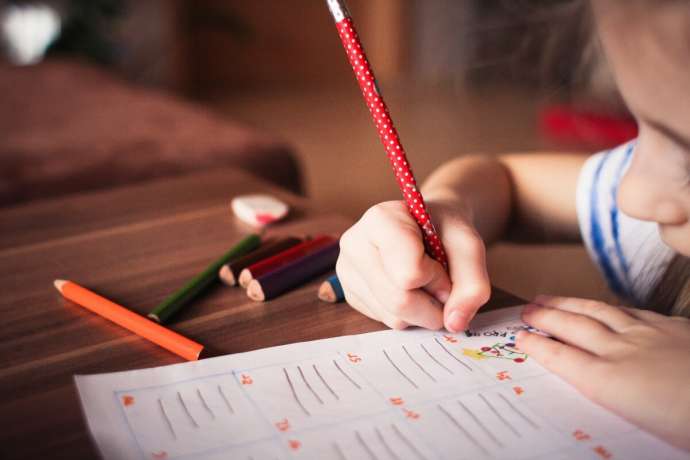STA, 29 March 2021 - As Slovenia is headed for a circuit-breaker lockdown as of Thursday, with kindergartens and schools shutting down as well, some headteachers are surprised with the government's decision, while others are prepared for the shutdown. All of them, however, said that remote schooling and closed kindergartens are stressful for the children.
With the British variant of the new coronavirus driving the incidence of Covid-19 in Slovenia, all non-essential services, baring several exceptions, will have to close between 1 and 11 April, while the industry has been asked to allow as much work from home as possible.
While schools for special needs children will remain open, this will not be the case for kindergartens, primary and secondary schools.
Several headteachers have told the STA on Monday that this had taken them by surprise, because the government advisory group as well as the government had said in the past that schools and kindergartens would be the last to close.
Mojca Kirbiš, the head of Maribor schools headmasters' club, told the STA that the decision taken by the government and experts needs to be respected, adding, however, that the developments are taking a toll on schools.
"All of us, teachers and students, are tired of the constant changes... We've barely returned to classrooms and established a normal rhythm but now the system is being changed again," said Kirbiš, also adding that there are no guarantees schools would reopen on 12 April under the model in place at the moment.
Several headteachers also pointed to problems regarding national competitions, some of which have been scheduled for the week slated for lockdown. Moreover, the competitors will not have an equal footing this year, they fear.
Rudolf Planinšek, the headteacher of a Kranj primary school, does not expect too many problems with the process of organising remote schooling, but is worried about grades. Remote schooling widened the gap between good and poor students, he said.
"There will definitely be some problems, but we'll overcome them somehow," he is confident. If students will be allowed to return to classrooms on 12 April, the school year will be a good one, he believes.
Irena Sivka Horvat, the headteacher of an Izola primary school, also believes that the lockdown, planned for only a week and a half, will not have an adverse effect on the grades.
She hopes that students will be able to make up for the lost time once the situation normalises, adding also it was yet impossible to say to what extent the knowledge of children had been effected.
Nevenka Kulovec, the headteacher of a Novo Mesto primary schools, believes the lockdown is a good decision if it will buy time for vaccination. It does however undermine the school's programme, but they will adapt, she said. Grades have gotten worse, students are poorly motivated and their ability to learn has declined, she said.
In secondary schools, remote schooling will cause the most stress to the finishing classes who are about to take the matura school-leaving exams that start in a month. "What if something like this happens during matura?" said Herman Pušnik the headteacher of a Maribor secondary school.
While secondary schools will close completely, kindergartens and schools will have to provide urgent childcare for kindergartners and pupils up to third grade.
Kindergartens are still awaiting instructions from the Education Ministry to learn whether childcare will be provided only to children of parents in critical infrastructure or to others without childcare as well.
They hope to receive this information as soon as possible, so as to be able to organise work and meals for the lockdown period, Romana Epih, the headteacher of the Medvode kindergarten told the STA.
Tea Dolinar, the headteacher of Kranj kindergartens, echoed this position. There is not enough time, she said, but her team is already used to such fast and stressful transitions and will make it work.
Dolinar also pointed to the stress the closures put on the children, with many small kids perceiving the return as if they are coming to the kindergarten the first time. A similar sentiment was expressed by several other headteachers the STA has talked to.
Silvija Komočar, the headteacher of a Brežice kindergarten, meanwhile said that the situation is nothing new and that the kindergarten already had a lot experience with urgent childcare and was well prepared. She also said that the closures were stressful for the children.
Meanwhile, the umbrella association of pedagogical workers has called on the Education Ministry to finally take action and establish a policy that would minimise the negative effects of the closures.
After a year of extraordinary circumstances, the ministry should finally establish a task force to communicate with the government advisory group so as to ensure that restrictions are truly proportionate.






